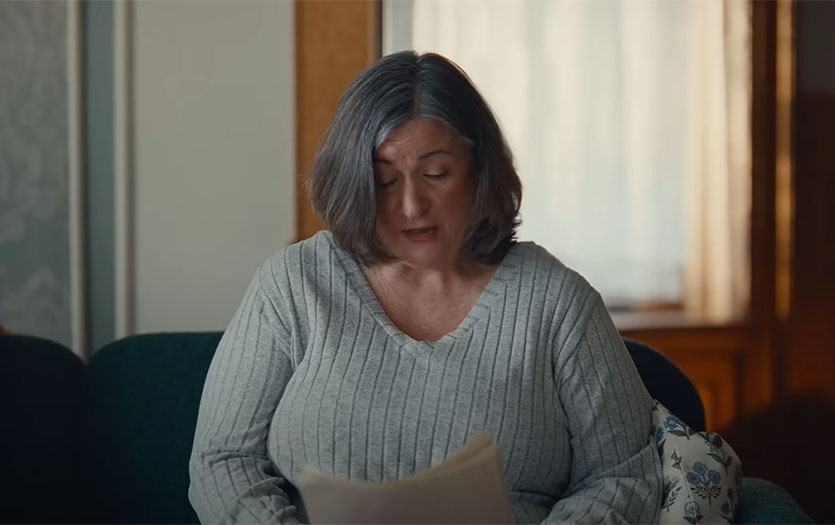
This post was written by Patrick Riecke, director, Dignity and Spiritual Care, Ethics Committee Chairperson, Parkview Health.
Ethics Committee Chairperson. That’s one of my titles at Parkview.
As the leader of our ethics team, I listen, give advice, and make formal recommendations.
You do all those things, too. You listen, give advice, and make decisions and recommendations.
When I listen and advise, there are always competing desires and opinions. Tensions rise. Emotions flare. Maybe everyone thinks they are right. Or perhaps no one knows what to do.
Sound familiar? If you have social media, this is not a new experience.
I have delivered letters that contain words like “cease and desist.” I have given advice that sets a family on a path to saying goodbye to their loved one. I have held mothers sobbing over the trauma their baby has experienced. I have said, “You can’t come back here until you stop acting like this.” Or, “We can’t do that because it’s not in the patient’s best interests.” I draw boundaries and remind people of what is true. But mostly, I ask questions, and we work together. Then, the light usually dawns on the right next step.
If you’re a parent, friend or coworker, I bet you do the same things. Listen, ask questions and set boundaries. You want to help people see what is true.
Once a month, I provide an hour-long education session for Parkview nurses. When they see “Medical Ethics” as the topic for the next session, they have one of two responses. Some expect it to be boring, with rules and bullet points. Those nurses are about 40% correct. Others expect a complicated, ambiguous topic–like wading through a neighborhood pond at midnight. Those nurses are 100% accurate. At the end of this post, I will reveal their most common response during our sessions.
Like no other time in my life, 2020 and 2021 were fraught with tensions, venom, division and grief. More people have died than ever before. Several of my friends and family have died, and I am not over it.
This Christmas, it’s okay that you are tired. But it’s deeper than normal fatigue.
You might be experiencing moral distress. Moral distress is when you repeatedly witness actions or situations that violate your values. For example, you might value family togetherness but haven’t seen your parents much in 2020 and 2021. That’s moral distress. For me, our ethics committee meetings moved online. I appreciate the camaraderie we experienced when we met in person. So, I experience a low level of moral distress. This occurs when the events we experience conflict with our beliefs and needs.
Beyond moral distress, we can also experience moral injury. Moral injury is when a violation of your morals happens directly to you, or you are the perpetrator of an action that contradicts your values. For example, many people have had to close their business or place of worship, or at least limit activities. Imagine being a pastor, priest, rabbi, imam, or business owner and telling your people, “Please don’t come to our religious services or shop at our store.” For me, I recommended strict visitor restrictions at our hospitals. That defies my morals. I value having family, friends and clergy visit our patients. But I had to say no (along with thousands of other healthcare leaders).
Moral distress and injury are unjust and unfair. They are also common and understandable.
Your beliefs and choices are playing tug of war with your soul.
Even though we are doing the best we can, it’s not enough.
How can you approach this problem?
Can it be resolved?
There is only one answer. And it’s not rational. You see, explaining our injurious actions to our soul won’t heal it. So it might be perfectly logical that you and I have done what we have done. But the explanation doesn’t make us feel better.
The answer? Forgiveness.
Self-forgiveness.
Say out loud, “I did the best I could with the information I had at the time.”
Remember, and believe that moral distress and moral injury cannot diminish your dignity, worth, or value.
As the chairperson of ethics for Parkview, I am sure I have given some bad advice. And I feel bad if anything I said or did impact anyone negatively.
The only way I can move forward is by loving myself enough to say– “You are forgiven.”
Oh yeah, those nurses? Do you know what they always say to me at the end of our education sessions?
They say, “I’m glad I don’t have your job.” I always laugh and say that I am glad I don’t have their jobs. After all, I failed high school chemistry.
But the truth is–we all have hard jobs. We are friends, coworkers, parents, partners and social media scrollers. All of those roles can lead to moral distress and injury. No rationalizing will heal your soul.
Finally, I love you enough to say this to you.
If you feel ripped apart by the choices others have made.
If you have listened, advised and made recommendations.
If you have done things that you didn’t want to have to do.
This holiday season, my gift to you is the following three words.
You. Are. Forgiven.



